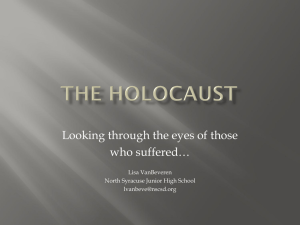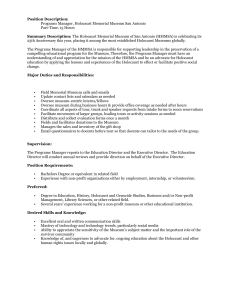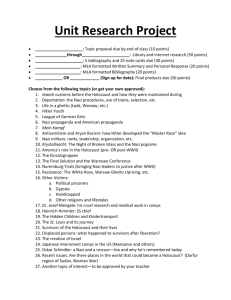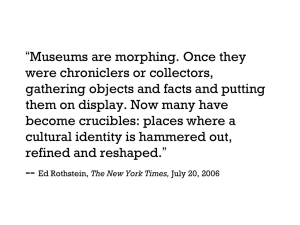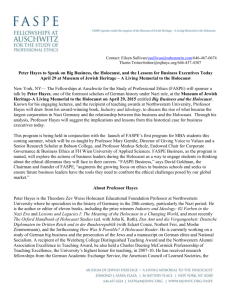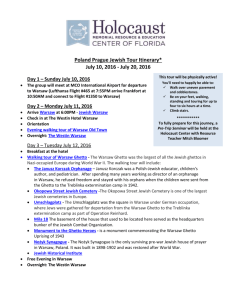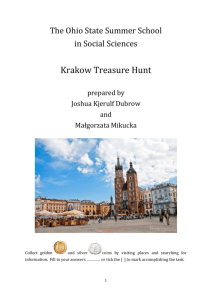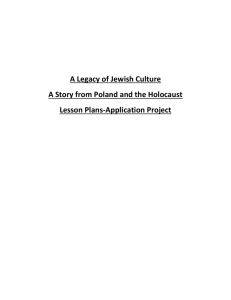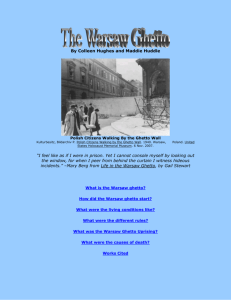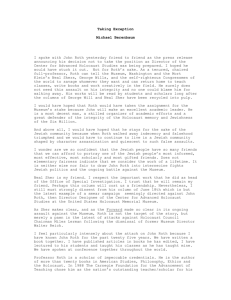Itinerary June 2016
advertisement
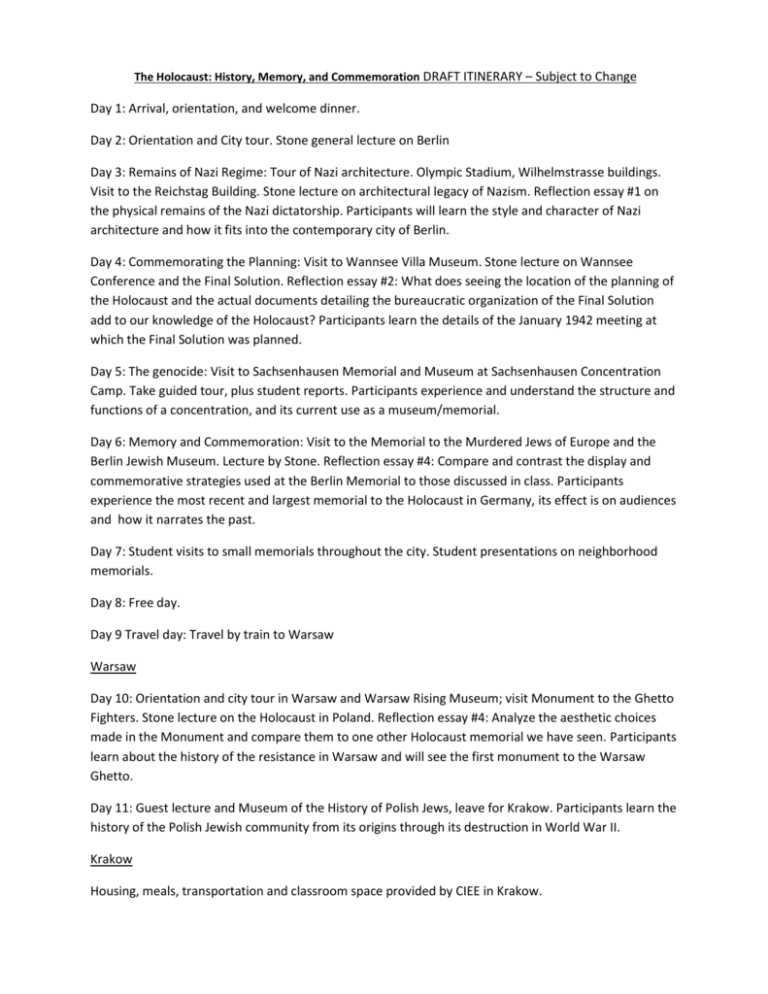
The Holocaust: History, Memory, and Commemoration DRAFT ITINERARY – Subject to Change Day 1: Arrival, orientation, and welcome dinner. Day 2: Orientation and City tour. Stone general lecture on Berlin Day 3: Remains of Nazi Regime: Tour of Nazi architecture. Olympic Stadium, Wilhelmstrasse buildings. Visit to the Reichstag Building. Stone lecture on architectural legacy of Nazism. Reflection essay #1 on the physical remains of the Nazi dictatorship. Participants will learn the style and character of Nazi architecture and how it fits into the contemporary city of Berlin. Day 4: Commemorating the Planning: Visit to Wannsee Villa Museum. Stone lecture on Wannsee Conference and the Final Solution. Reflection essay #2: What does seeing the location of the planning of the Holocaust and the actual documents detailing the bureaucratic organization of the Final Solution add to our knowledge of the Holocaust? Participants learn the details of the January 1942 meeting at which the Final Solution was planned. Day 5: The genocide: Visit to Sachsenhausen Memorial and Museum at Sachsenhausen Concentration Camp. Take guided tour, plus student reports. Participants experience and understand the structure and functions of a concentration, and its current use as a museum/memorial. Day 6: Memory and Commemoration: Visit to the Memorial to the Murdered Jews of Europe and the Berlin Jewish Museum. Lecture by Stone. Reflection essay #4: Compare and contrast the display and commemorative strategies used at the Berlin Memorial to those discussed in class. Participants experience the most recent and largest memorial to the Holocaust in Germany, its effect is on audiences and how it narrates the past. Day 7: Student visits to small memorials throughout the city. Student presentations on neighborhood memorials. Day 8: Free day. Day 9 Travel day: Travel by train to Warsaw Warsaw Day 10: Orientation and city tour in Warsaw and Warsaw Rising Museum; visit Monument to the Ghetto Fighters. Stone lecture on the Holocaust in Poland. Reflection essay #4: Analyze the aesthetic choices made in the Monument and compare them to one other Holocaust memorial we have seen. Participants learn about the history of the resistance in Warsaw and will see the first monument to the Warsaw Ghetto. Day 11: Guest lecture and Museum of the History of Polish Jews, leave for Krakow. Participants learn the history of the Polish Jewish community from its origins through its destruction in World War II. Krakow Housing, meals, transportation and classroom space provided by CIEE in Krakow. Day 12: Orientation and city tour in Krakow Day 13: The memory of Jewish life in Krakow: Kazimierz with a visit to the Galicia Jewish museum, synagogue, and cemetery. Lecture on pre-war Jewish life by Stone. Reflection essay # 5: How is the memory of the Polish Jewish community commemorated in the lived environment of Kazimeirz? Participants learn about the character and shape of Jewish life in one of Poland’s largest cities before World War II. Day 14: preparation for visit to Auschwitz: class discussion and journaling; afternoon, guest lecture Day 15: Auschwitz visit, the site of the Holocaust’s most deadly and well-known concentration camp. They will compare what they have read about it with what they see at the memorial site. Day 16: Presentations and discussion of in-country experience; farewell dinner Day 17: travel day H:\STUDY ABROAD - PROGRAMS\Short Term & Faculty Led\POLAND-GERMANY\Itinerary.docx
